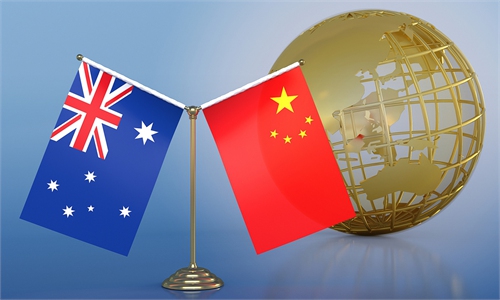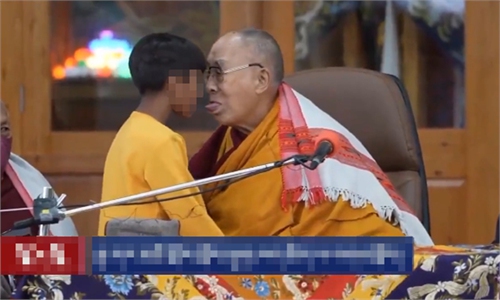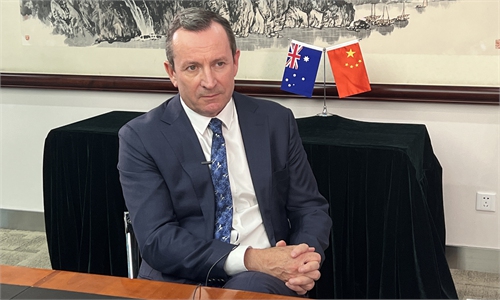Western Australia wants to have a very strong and cooperative relationship with China: Premier
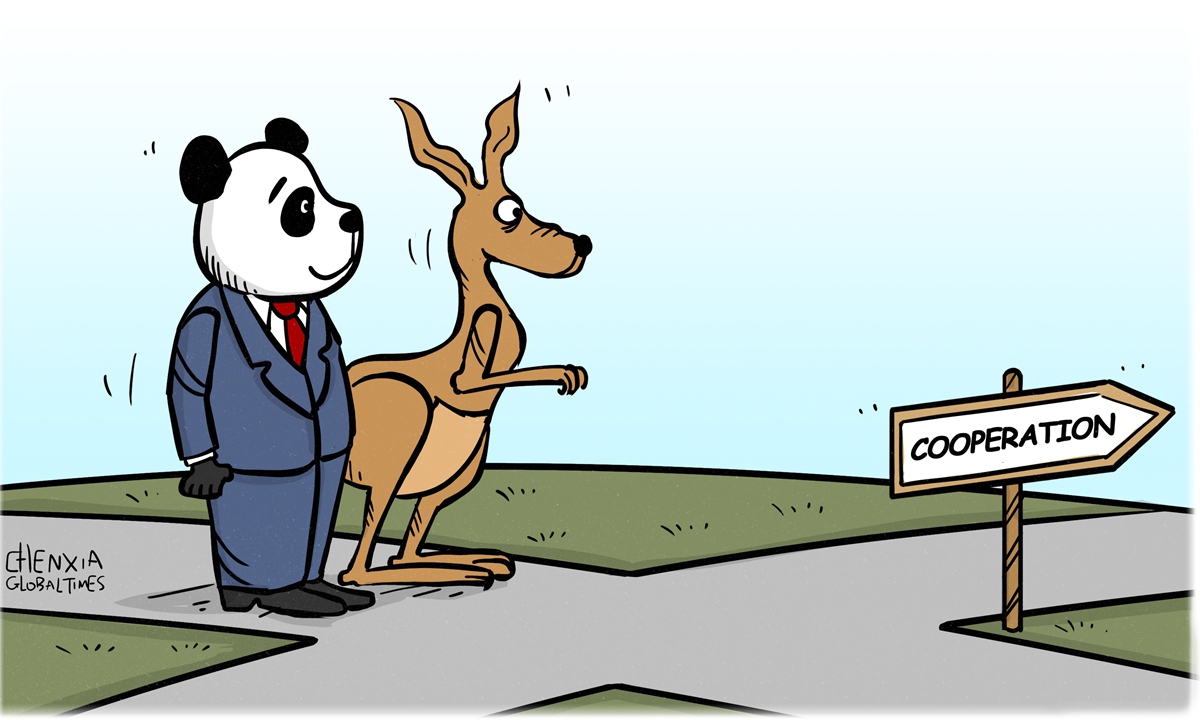
Illustration:Chen Xia/GT
Editor's Note:"The idea behind the visit is to make sure that there is a good understanding that Western Australia wants to have a very strong and cooperative relationship [with China]," visiting Western Australian premier Mark McGowan (McGowan) told Global Times (GT) reporters Xiong Xinyi, Yu Jincui and Xing Xiaojing in an interview on Wednesday. He said the current Australian government has an appetite for a better relationship with China, noting that there have been increasing bilateral contacts every day, and he is very keen for that to continue. "Trade and investment opportunities benefit both countries," the premier said. The following is the full transcript of the interview.
GT: Could you tell us a little about your trip here? What are you doing here? Who are you going to meet? And what do you hope to achieve during this visit?
McGowan: It's a five-day visit and my first visit to China in about four years because of the pandemic predominantly. We will meet some senior government officials, the ministers of China's National Development and Reform Commission (NDRC), and a range of businesses with interests in Western Australian and then hold a range of events, dinners and forums with people with an interest in Australia and those with an interest in improving the relationship.
The idea behind the visit is to reengage at a person-to-person level with the authorities, investors and customers here in China, and make sure that there is a good understanding that Western Australia wants to have a very strong and cooperative relationship.
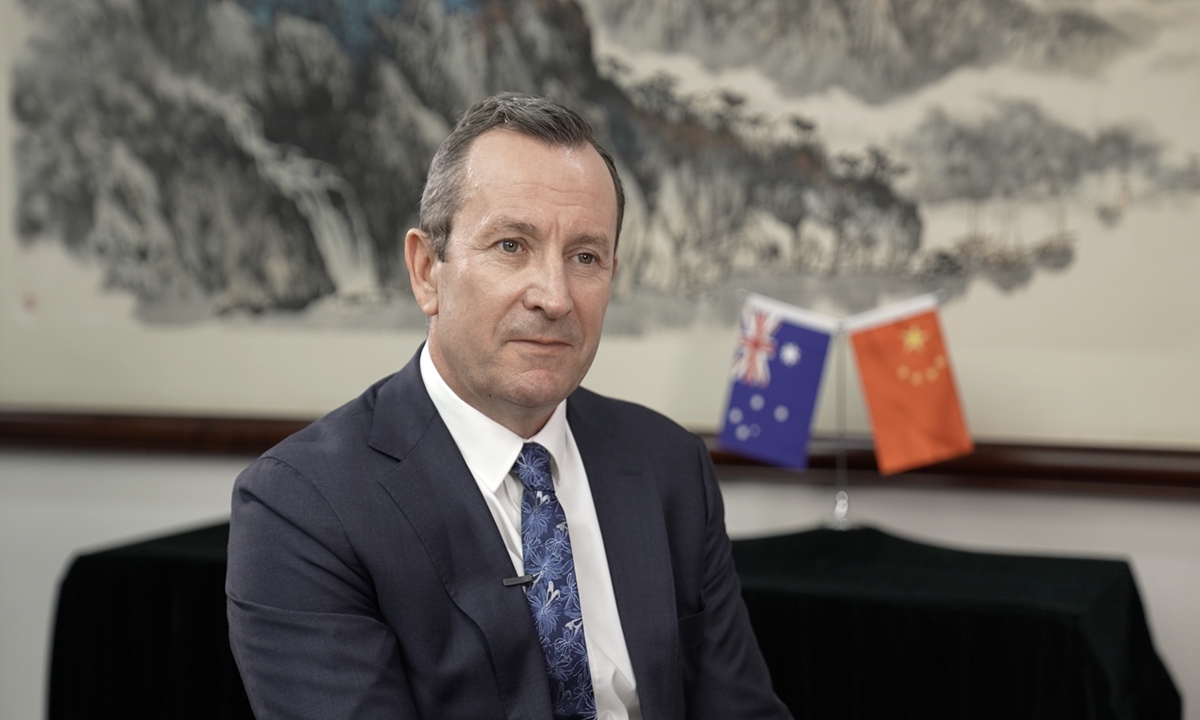
Western Australian premier Mark McGowan. Photo: Zhang Yashu/GT
GT: What specific outcomes can we expect?McGowan: An improvement in our relationship and an understanding that investing in Western Australia and having a friendly relationship has benefits for both countries, obviously our work on additional students and airlines are restarting. There are direct flights and also hopefully some moves on trade barriers between our countries.
GT: Over the past few years, China-Australia ties experienced a quite unpleasant period. You have repeatedly called for restoring the bilateral relations and believe that Australia should reestablish relations with China. Why do you make such a call and has this call encounter resistance within Australia?
McGowan: I think it's in everyone's interest to have a good relationship between Australia and China. The entire region will benefit from that, especially for the people of China and the people of Australia, both economically, culturally and in a security sense. I think with the new federal government in Australia, there is an appetite for a better relationship with China. I think you can see that every day with bilateral contacts and less controversial language. So I'm very keen for that to continue, and I think that is what is occurring. I'm not detecting any great hostility to that course of action among most people in Australia.
GT: We have seen some signs of a thaw in the bilateral relations. However, there are also some noises hindering this trend, such as some Australian media constantly hyping the possibility of a war with China. What's your take on this contradiction?
McGowan: I think it's improved a lot. There were some people who were suggesting that some time ago and I think they have toned down their language now. Obviously, they are dangerous and inflammatory sentiments that those people were promoting. It appears to me that they have largely stopped. So I think it's improved and I expect it will continue to improve.
GT: Western Australia has a close trade relationship with China, but there are repeated calls within Australia to decouple from China. Will this cast a shadow over economic and trade cooperation between Western Australia and China? Do you feel any pressure and how will you break through it?
McGowan: I don't support anyone who says we should decouple. I think the relationship is strong and beneficial to both countries. We have a strong trading relationship with other countries as well. Trade and investment opportunities benefit both countries, create jobs and employment, and provide better living standards for everyone. So in terms of any of those calls, I think they are now in the past.
GT: Why do you think Western Australia should ensure that it continues to maintain close economic and trade ties with China?
McGowan: Because it benefits China. It certainly allows for enhanced construction and good agricultural products to be converted into quality food products. It allows for the lights to stay on with less energy-intensive emission fuels. In Western Australia, it means that people have jobs in producing those materials, whether it's mineral products, agricultural products or manufacturing products, and also means we buy some Chinese products as well. So it brings benefits to the community and the people with those sorts of arrangements are in place.
GT: What kind of action do you think your government can do to enhance the confidence of the business community in the marketing environment and economic relations between China and Western Australia?
McGowan: We come to China for forums, events and meetings, which is what I'm doing, and invite Australian business people here, who have come as well. The Australian media has come and has the support of the Chinese authorities allowing for that. I think those sorts of things show a warming in the relationship. I would encourage other state premiers and governments to come to China as well and I certainly encourage the commonwealth government of Australia to engage in that practice. I encourage people in senior positions in China to come to Australia as well.
GT: What opportunities do you think China's economic recovery this year will bring to Western Australian companies? And in what aspects do you wish to strengthen cooperation with China?
McGowan: Obviously, our cooperation and economic relationship is strong, but it can diversify further. For instance, direct flights from China to Australia and vice versa would be a good thing. So the airline that wants to do that would be terrific. Tourism and student exchange both ways will be good for both countries. I'd like to see greater cooperation and investment in the areas of renewable energy. So I think China can receive some benefits from investing in renewable projects in Western Australia that can produce things like renewable hydrogen and ammonia, and also undertake some manufacturing using renewable energy in Australia that reduces emission intensity. So those sorts of things can assist both countries' ambition to reduce our greenhouse gas emissions. In our case, down to net 0 by 2050, and in China's case down to net 0 by 2060.
GT: What's your main aim for this trip? As we know you will attend a strategic dialogue between Western Australia and Chinese enterprises. What's your expectation for the dialogue?
McGowan: It will be a significant event with a large number of business people in senior positions from businesses in China and Australia. It's designed to ensure we can provide some answers to the questions they might have or at least pathways to the questions they might have. It also ensures that we demonstrate in a very real way, the improvement in the relations between Western Australia and China.
GT: We know that Western Australia will be the home to the nuclear-powered submarines. China has expressed its concerns over the AUKUS deal. So are you worried about that the AUKUS deal may affect the exchanges between China and Western Australia?
McGowan: Those are matters for the Australian government, obviously, as an Australian, I'm supportive of Australia's foreign policy. I'm a state politician, but I don't get involved in those foreign relation matters directly.
GT: Can you offer some suggestions on how to avoid the politicization of trade?
McGowan: In relation to trade, certainly I'd like to see trade restrictions and barriers removed. Australia and China have a Free Trade Agreement, and I'd like to see that come back into effect. I think the bilateral exchanges and the building of relationships between senior figures in both countries will allow for those matters to be negotiated and hopefully removed in the short term. It's beneficial to both countries to remove those trade barriers, because obviously, trade barriers can increase expense of consumers in China. They obviously result in a loss of market share for producers in Australia. So removing them will benefit both countries.
GT: We know that including you, a number of state governments' premieres have visited or are planning to visit China. So how will this local governments' engagement with China can help improve China-Australia ties?
McGowan: Foreign affairs are a responsibility for the commonwealth government, but states have a lot of responsibility for economic, cultural, and social matters. And so our engagement can assist in playing the ground for the commonwealth governments who resolves issues at national level with the government of China. There is some scope for other states to assist in resolving those issues.
